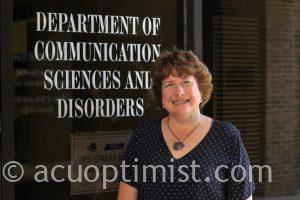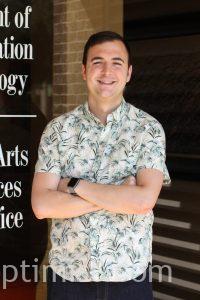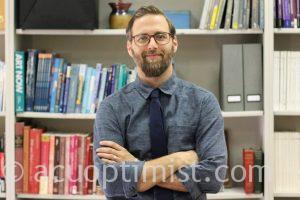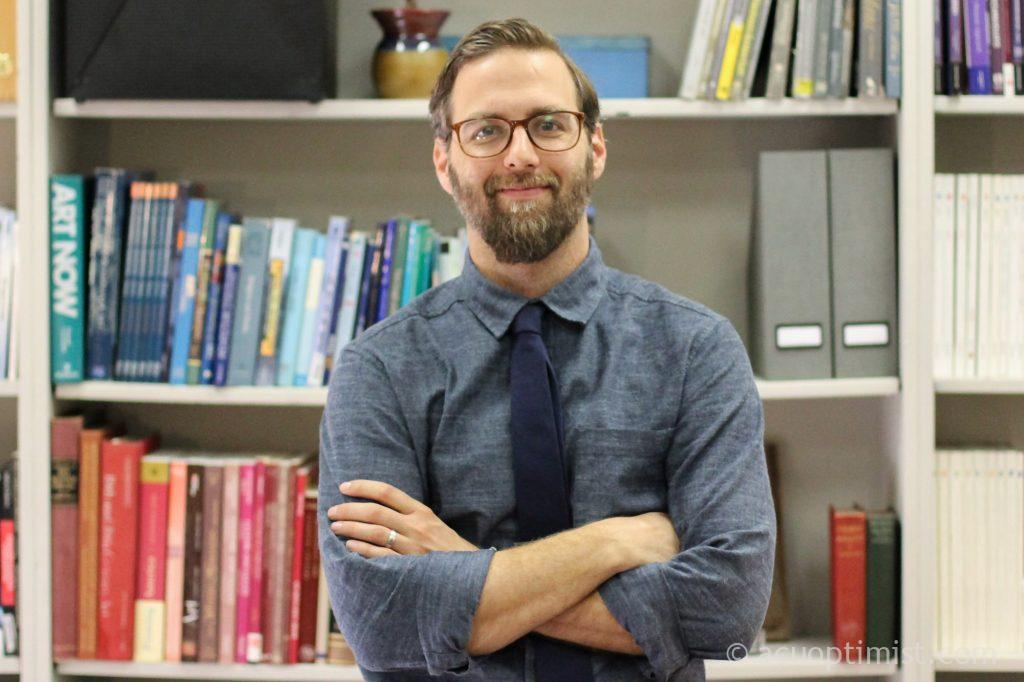Three faculty members have received a grant by the University Library Committee to encourage digital research at ACU.
Dr. Lynette Austin, Nick Tatum and Dr. Trey Shirley were awarded a year-long grant funding program called the Digital Scholars Grant. The grant is intended to encourage faculty research and learning within their specific fields of expertise.

Dr. Lynette Austin, associate professor of communication sciences and disorders conducts research for new language assessment application. (Photo by Riley Fisher)
Dr. Lynette Austin, associate professor of communication sciences and disorders, was awarded the grant in the category of faculty research. With the grant, she plans to develop an application to assist language assessment for bilingual or English-language learners, called Dynamic Assessment of Academic Language Skills (DAALS).
The tool will be used to look at a person’s learning process to see how quickly and easily he or she can learn a new language skill in order to help speech pathologists determine if there is a language learning disorder present. It will be used to assess children from about kindergarten to second-grade age.
Austin said she had the idea for the project prior to applying for the grant, a project that she had previously been working on.
“So I think that it will be pretty, reasonably easy to implement throughout the school year,” Austin said.
To apply for the grant, Austin was required to submit an online application describing project goals, purpose of the project, project impact, what would be involved in the project process and what outcomes would be expected.

Nick Tatum, instructor of communication and sociology, furthers understanding of PROCESS Macro, a statistical method. (Photo by Riley Fisher)
Nick Tatum, instructor of communication and sociology and director of student productions, was awarded the grant in the category of faculty expertise. With the grant, he plans to focus on furthering his understanding of the PROCESS Macro, an advancement in statistical analysis.
During the past summer, he used assistance from the grant to attend a week-long seminar about advanced statistical methods and conditional process analysis in Chicago. Conditional process analysis is a combination of two common statistical methods. The method can be used for social, business and health sciences.
“It’s really groundbreaking,” Tatum said. “It’s the future of what our field is doing when it comes to stats.”
Throughout the year, Tatum plans to give several presentations to the ACU community and serve as a resource for faculty in this area of expertise.

Dr. Trey Shirley, instructor of art and design and assistant chair of the department of art and design, conducts course -based research to utilize eye-tracking technology. (Photo by Riley Fisher)
Dr. Trey Shirley, instructor of art and design, assistant chair of the department of art and design and director of Cornerstone, was awarded the grant in the category of course-based research. With the grant, he plans to utilize eye-tracking technology for user-interface design analysis for his undergraduate Two-Dimensional Design course.
“In terms of the learning objectives and what I’m hoping students will get out of this, is first of all, just understanding the principles of composition better,” Shirley said. “But secondarily, my hope is that we’re introducing them to UX design. And UX is one of those hot topics right now in design.”
UX design stands for User eXperience design and is a collaboration between graphic designers, computer scientists and psychologists in determining motivations of a person when viewing an image and the functionality and accessibility of an image.
“My hope is that the students will feel comfortable with the equipment and the tools to later on be able to use that in their own research, and maybe conduct their own research using UX principles,” Shirley said.
Shirley plans to run the first trial of the eye-tracking technology this semester with about 13 students assisting in the research.
Grant recipients have been given approval from the University Library Committee to begin their research with the provided technological and monetary assistance.
ACU Scholars Lab will host a presentation night for the three faculty Digital Scholars to share their research and findings in the spring.


